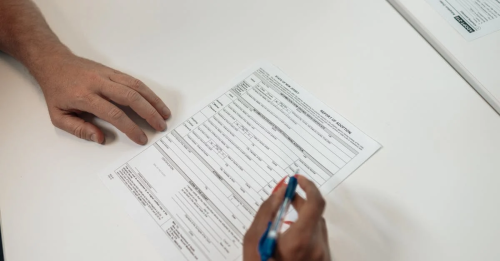If you’re pursuing higher education, you may have stumbled upon the terms “master’s degree” and “masters degree.” You might be curious about which form is correct, and often people wonder, “Do you say masters or master’s?” The presence or absence of an apostrophe in “master’s degree” is not a trivial detail—it can reflect on your understanding of the grammatical rules at play. In fact, mastering such nuances is akin to enrolling in a degree accelerator that propels your linguistic precision and academic legitimacy.
Additionally, you might have noticed that some master’s degrees carry specific titles, like Master of Arts or Master of Science, whereas others adopt a more general approach, such as Master of Business Administration or Master of Engineering. How should you correctly write these terms, and what exactly do they signify?
Understanding the Apostrophe: Master’s Degree Defined
The Significance of the Apostrophe
The apostrophe in master’s degree indicates a possessive case, meaning that the degree belongs to a master of a certain field of study. The apostrophe shows that the master has achieved a level of mastery or proficiency in that field. For example, a Master of Science degree means that the person has mastered the scientific knowledge and skills required for that degree.
The apostrophe also helps to distinguish between singular and plural forms of master’s degree. For example, one master’s degree is written with an apostrophe, but two or more master’s degrees are written without an apostrophe.
This is because the plural form does not imply possession, but rather a category or type of degree.
Masters Degree or Master’s Degree?
To address a common query, the correct way to write “Masters” when referring to the academic degree is “master’s degree,” with an apostrophe. This carries the possessive form, signaling that the degree is of or relating to a master in a particular field. Writing a clear explanation is as essential as crafting a strong 3/4 page essay—it needs to be concise, yet comprehensive enough to cover the topic adequately.
This is not grammatically correct, and it may cause confusion or misunderstanding.
For example, if you write “I have a masters degree in literature”, it may sound like you have more than one degree in literature, or that you have a degree that is called “masters” in literature. This is not what you mean to say, and it may make your writing less clear and professional.
Therefore, you should always use an apostrophe when writing master’s degree, unless you are referring to a specific degree title that does not have an apostrophe, such as Master of Arts or Master of Science. In that case, you should capitalize both words and avoid using a possessive form.
Companion Terms: Bachelor’s, Doctorate, and Others
Consistency Across Academic Degrees
As we have seen, master’s degree is written with an apostrophe and in lowercase, unless it is part of a specific title. This rule also applies to bachelor’s degree, which is another common type of undergraduate degree.
For example, you can write:
- I have a bachelor’s degree in history.
- She earned a Bachelor of Arts in psychology.
However, not all academic degrees follow this pattern. For instance, associate degree, which is a two-year degree offered by community colleges and other institutions, does not have an apostrophe.
Neither does doctorate degree, which is the highest level of academic degree. For example, you can write:
- He received an associate degree in nursing.
- She holds a doctorate in philosophy.
Another exception is the term doctor, which can be used as a courtesy title before a person’s name, instead of using the abbreviation Ph.D. or the full name of the degree. For example, you can write:
- Dr. Jones is a professor of sociology.
- Jane Jones, Ph.D., is a professor of sociology.
- Jane Jones, Doctor of Philosophy, is a professor of sociology.
When to Use Possessive and When Not To
The main reason to use a possessive form with master’s degree and bachelor’s degree is to show that the degree belongs to a master or a bachelor of a certain field. However, there are some cases where you do not need to use a possessive form, even if the degree is not part of a specific title.
For example, you do not need to use a possessive form when you are using the term as an adjective to modify another noun. For example, you can write:
- She is a master teacher.
- He is a bachelor candidate.
You also do not need to use a possessive form when you are using the term as a noun to refer to a person who has the degree, rather than the degree itself. For example, you can write:
- She is a master of engineering.
- He is a bachelor of arts.
In summary, you should use a possessive form with master’s degree and bachelor’s degree when you are referring to the degree itself, but not when you are using the term as an adjective or a noun to refer to a person. You should notuse a possessive form with associate degree and doctorate degree, regardless of the context.
Grammar and Punctuation: Fine-Tuning Your Academic Vocabulary
The Role of Grammar in Academic Excellence
Grammar and punctuation transcend mere technical aspects of writing; they are crucial tools for conveying your meaning, logic, and credibility effectively. They delineate the structure of your text, guiding the reader through the interconnectedness of ideas, indicating not only the transition from one thought to another but also highlighting the relative importance of these ideas. Incorrect grammar and punctuation can distort the relationship between ideas, leading to confusion and weakening your argument.
Therefore, it’s imperative to meticulously focus on grammar and punctuation in your academic papers, especially when referring to degrees. Always proofreadyour work carefully and employ reliable sources and tools for ensuring accuracy. For instance, utilize a [punctuation checker] for immediate feedback, or refer to a [grammar guide] for a comprehensive overview of pivotal grammar areas essential for academic writing.
Examples and Exceptions in Degree Nomenclature
The writing of degree terms follows certain rules and patterns, such as adopting an apostrophe and lowercase for ‘master’s degree’ and ‘bachelor’s degree’, unlike ‘associate degree’ and ‘doctorate degree’. Nonetheless, various examples and exceptions exist, influenced by contextual, disciplinary, or institutional factors.
For instance, degree terms might vary in spelling or abbreviation between British and American English, e.g., ‘honour/honor’, ‘programme/program’, or ‘BA/BSc’. Certain degree terms may also carry different meanings or requirements across countries or regions, illustrating the distinction between a Master of Philosophy (MPhil) and a Doctor of Philosophy (PhD) in the UK versus the US.
Moreover, specific capitalization or punctuation rules may apply to degree terms, such as the use of periods or spaces in abbreviations, or employing hyphens or slashes in compound terms.
Thus, when writing degree terms, it’s crucial to adhere to the style and conventions of your specific field and institution, consulting the official websites or publications for guidance. Ensure the use of consistent and clear terminology throughout your paper, avoiding any mix or switch between different spellings, abbreviations, or formats.
Capitalization and Context: Writing It Right
In this section, we explore the correct use of capitalization in terms related to master’s degrees, as well as how context influences the choice and interpretation of these terms.
Should “Master’s Degree” Be Capitalized?
Capitalizing “master’s degree” depends on its use as either a generic or specificterm. A generic term applies broadly to any master’s degree in any study area, whereas a specific term refers to a precise master’s degree in a designated field.
For generic usage, the term should not be capitalized, and an apostrophe is used to denote possession. For instance:
- She has a master’s degree in economics.
- He is working on his master’s thesis.
Conversely, for specific terms, both ‘Master’ and the field of study are capitalized, avoiding apostrophes or possessive forms. Examples include:
- She has a Master of Education in curriculum and instruction.
- He is enrolled in the Master of Business Administration program.
Note that these rules are applicable to bachelor’s degree terms but do not extend to associate or doctorate degrees, which are never capitalized or possessive.
The Impact of Context on Degree Terms
The context in which you write can significantly affect how degree terms are used and understood, influencing spelling, abbreviation, and meaning.
Different versions of English, such as American or British, may spell or abbreviate the same terms in varying ways. For example, “honour” or “programme” in British English contrasts with “honor” or “program” in American English, and abbreviations may differ as well (e.g., BA versus B.A.).
Additionally, the meaning and requirements of degree terms can vary by country or region, reflecting differences in education systems and academic standards. For instance, the MPhil in the UK, a two-year research degree requiring a dissertation, contrasts with the US’s MPhil, an intermediate award for doctoral candidates who’ve completed coursework and exams but not their dissertation.
It’s essential to consider your writing’s context carefully when selecting and using degree terms, consulting official sources and guidelines for accuracy and consistency.
Real-World Applications: Using Your Knowledge
On Resumes and Academic Documents
Accurately and consistently listing your degree terms on resumes or academic texts, such as theses or dissertations, is crucial. It enables you to highlight your qualifications and achievements while preventing any potential confusion or misunderstanding.
Here are some guidelines for representing degree terms on resumes and academic documents:
- Prefer using the full name of your degree instead of abbreviations, unless space is limited or the abbreviation is broadly recognized. For instance, opt for “Master of Science” rather than “MSc,” unless the latter is common in your sphere.
- Employ an apostrophe and lowercase for general terms, like ‘master’s degree’ or ‘bachelor’s degree’, but capitalize and drop the apostrophe for specific terms, such as Master of Arts or Bachelor of Science.
- Include the name of the institution, its location, graduation date, and your major and minor (if relevant) for each degree. Additionally, you can mention your GPA (if it’s 3.5 or higher), honors, pertinent coursework, and extracurricular activities.
- Adhere to the stylistic norms and conventions of your field and institution, ensuring accuracy and consistency by consulting official sources and guidelines, like the [Chicago Manual of Style] for humanities and social sciences or the [APA Style] for psychology and education.
In Conversations and Interviews
Being clear, concise, and relevant while discussing your educational background in conversations and interviews can significantly enhance how you present your skills, knowledge, and potential.
Here are some tips for effectively talking about your education in conversations and interviews:
- Begin with the basics, such as your study area, institution, and graduation date. For example, “I studied mechanical engineering at the University of Madrid and graduated in 2019.”
- Highlight notable achievements, like honors, awards, or special projects, that showcase your abilities. For instance, “During my final year, I spearheaded a renewable energy sources project that earned a university award.”
- Mention relevant coursework that aligns with the conversation topic or job application. For example, “My computer science courses piqued my interest in coding.”
- Discuss extracurriculars that demonstrate your wider interests and competencies outside academia, such as “I was also active in the robotics club, honing my teamwork skills.”
- Talk about internships or practical experiences that highlight your professional growth and readiness for the workforce, like “I completed an internship at a local engineering firm, gaining invaluable experience.”
- Connect your education to your career aspirations or current job objectives, emphasizing how your studies have prepared you. For example, “My engineering education is foundational to my goal of pursuing a career in sustainable energy.”
- Practice articulating your educational journey, utilizing online resources or language exchange partners to boost your fluency and self-assurance. For instance, “I frequently practice discussing my university experiences and courses with my language partner.”
FAQ
What is the correct way to write Masters?
When discussing the correct form of the term, it’s important to understand that “master’s degree or masters degree, which is correct?”—the answer is the former. The term “master’s degree” is written with an apostrophe to indicate the possessive case.
How do I say I have a Masters degree?
To express that you have a master’s degree, you may use phrases like:
- I have a master’s degree in [field of study].
- I graduated with a Master of [field of study].
For example:
- I have a master’s degree in Linguistics.
- I graduated with a Master of Engineering.
Is it right to say Masters degree?
No, it is incorrect to say “Masters degree” without an apostrophe. The proper configuration is “master’s degree,” using an apostrophe to denote possessiveness, indicating it is the degree of a master in their field of study.
How to write Masters in education on your resume?
To accurately list a master’s degree in education on your resume, include:
- The school’s name, location, and the obtained degree (e.g., Master of Education or M.Ed.)
- Your major or department, graduation year, and any significant honors or awards (e.g., magna cum laude, Dean’s list)
- Any pertinent coursework, internships, research projects, or publications that highlight your abilities and accomplishments within the educational sphere
A brief skeleton example might be:
University of Paris • Paris, France
Master of Education (M.Ed.) in Curriculum and Instruction, 2022
- Graduated with honors and received the Outstanding Student Award
- Completed a six-month internship at a local elementary school as a curriculum developer and teacher assistant
- Conducted a research project on the effects of gamification on student motivation and learning outcomes
- Published a paper in the Journal of Educational Technology on best practices for integrating digital tools into the classroom”



